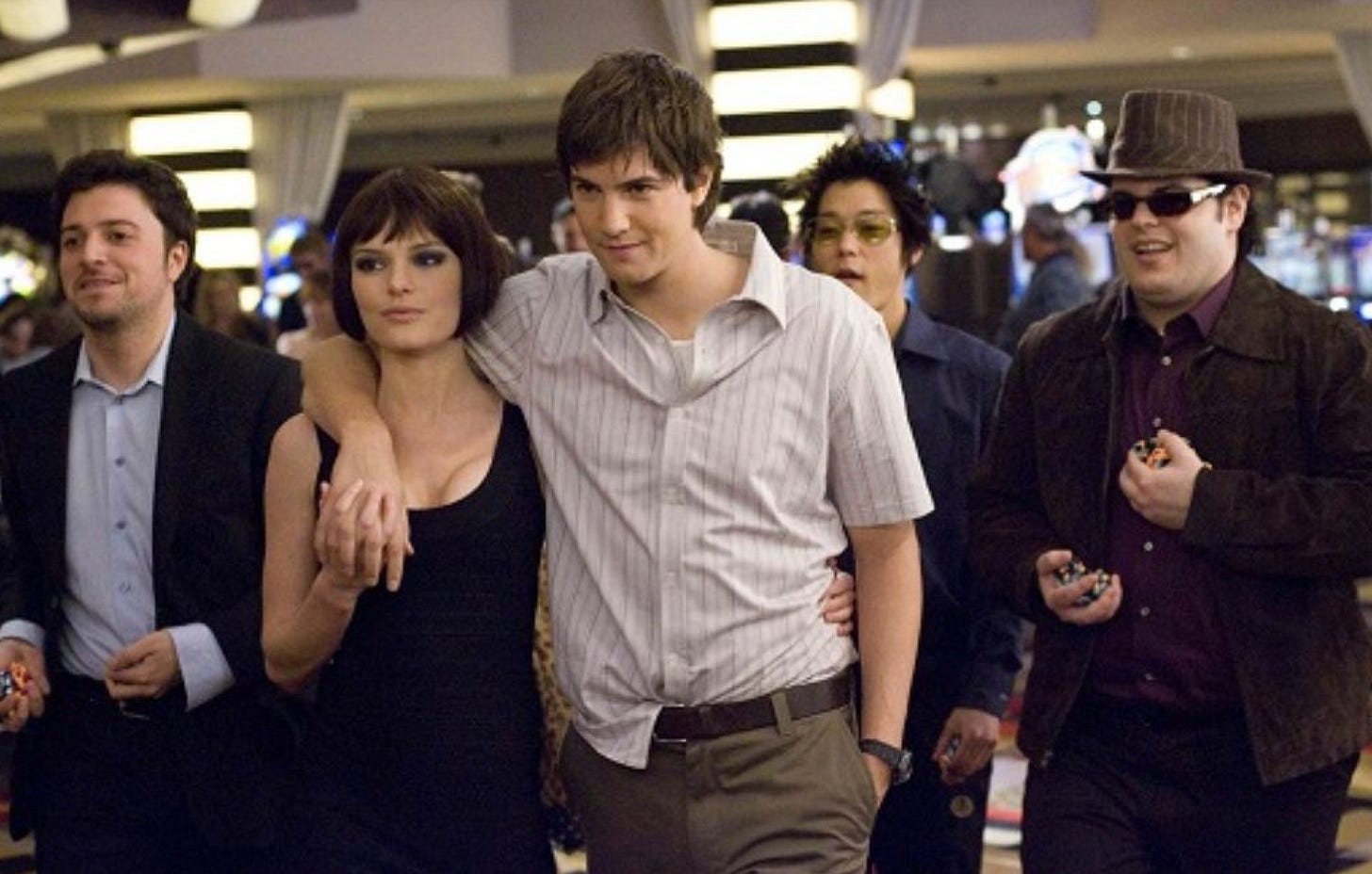The House Always Wins
The GameStop saga is funny and good, but Wall Street will always triumph in the end.
At some point last year, or perhaps before, an investment firm called Melvin Capital Management started funneling large amounts of its resources into short-selling stock of GameStop.
For people like me, who had a vague concept of short-selling but had to Google it a couple times over the past few days just to make sure, this usually entails "borrowing" stock and selling it, on the assumption that the stock price will then fall and you can buy back the stock you borrowed at a lower price. Short selling takes the only rule of the stock market — buy low, sell high — and uses stock borrowing to switch up the order of that to sell high and buy low. That's all the explaining of stock I'm going to do.
The problem with this strategy, as a million explainers over the past few days (this one is great) have already laid out, is that if the stock price goes up after you sell your borrowed shares, you have to buy it back at a higher cost and you lose money. The problem specifically for Melvin Capital Management is that a bunch of people on Reddit's WallStreetBets forum figured out that they had enough collective resources to buy a ton of GameStop stock, skyrocket the price, and absolutely dork on a private investment firm. So they did that, and Melvin got owned.
Let me be very clear here: this is good. Melvin Capital Management can eat shit. I do not want to in any way diminish the very clear public good that comes from doing terrible things to a hedge fund. The leader of Melvin, a guy named Gabe Plotkin, has already had to run back to his former bosses (who run bigger hedge funds) to get a bailout. From Yahoo Finance:
So steep were the losses -- about 30% through last week -- that Melvin on Monday turned to billionaire hedge fund founders Ken Griffin and Steve Cohen -- Plotkin’s former boss -- to shore up the firm. As of Tuesday, the fund’s losses had increased even with the portfolio repositioning, though investors wouldn’t say by exactly how much for fear of angering the money manager, which they expect can still fight its way back.
Get absolutely wrecked. Go run back to daddy you stupid little capitalist piggy. Take your... $3 billion bailout and. Oh. Ok you got a $3 billion bailout.
But still, bailouts or no, it's good that the finance bros are at least a little bit scared and humiliated. It's good that this happened:
It's extremely good that a bunch of Serious Investor Guys and Serious Investor Journalists and Serious Markets Knowers are having a little tizzy. It's extremely funny that President Biden and his brand new Treasury Secretary Janet Yellen are having to "monitor the situation" because a group of people on a subreddit who aren't supposed to be able to win at the game figured out a way to win at the game for just a minute. Because that's all this is — a game! Stocks are fake, markets aren't real, this is all just gambling.
But the only rule of gambling though is that the house always wins. And the stock market is set up so that the hedge funds and the investment management companies and the big banks are always, always the house. What we're seeing right now is a guy who rolled up with a pocket full of change hitting the jackpot on a penny-slot. The other thing, of course, is that watching a guy hit a jackpot is really only good for the casino, because everyone who sees him do it thinks they're going to be the next one to hit.
Consider also this: BlackRock Inc, the world's largest asset manager, owns about 13% of GameStop. During this entire thing, it's made approximately $2.4 billion dollars, perhaps as much as $1.2 billion this month alone. That doesn't mean that it's a bad thing that some Reddit guys decided to own a guy who named his amoral investing company after his dead granddad Melvin into the sun, but it does mean that in the grand scheme of things, the house is doing just fine — and indeed, could blow the whole thing up at any moment. Right now, BlackRock is probably more than content to sit on its earnings, but what happens when they decide it's time to cash out?
At best, what we're seeing is the investing version of the 2008 blackjack movie 21 where a bunch of inexplicably hot MIT kids learn how to count cards and start hitting casinos all over the country. Except in this case, instead of going out to clubs and buying designer clothes and making out with each other, the winners are mostly just paying off their student loans. The ending of 21, of course, is that all the casinos in Vegas install biometric software and the gang has to pull one last job to cash out before their game is up. (Jeff Ma, the real-life MIT undergrad who the film's main character was based on, and who was turned into a white person for the movie, went on to found a fantasy sports/ stock market simulation company). You can be sure that Wall Street, and the government it largely controls, is going to do the same: halting trades, and most importantly immediately shifting blame for the instability onto the small-time posters and day traders, rather than the openly corrupt system they had the nerve to exploit.
WallStreetBets realized that if they pooled individual resources towards a common goal, they could briefly hit on the level of a decently-sized hedge fund. But Wall Street's superpower isn't just access to money — it's in making sure that the pain of their mistakes is always passed down to someone else.





